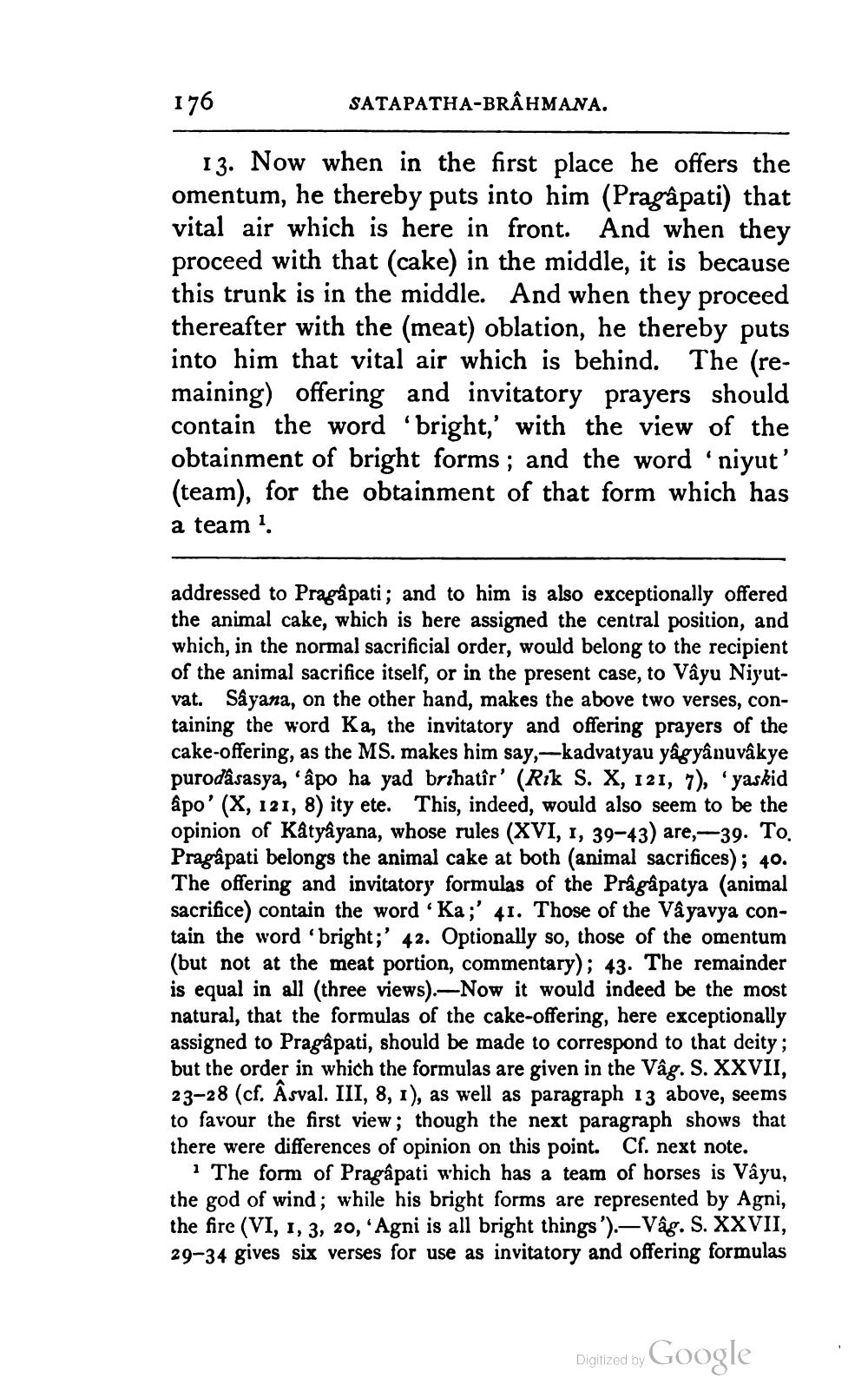________________
176
SATAPATHA-BRAHMANA.
13. Now when in the first place he offers the omentum, he thereby puts into him (Pragâpati) that vital air which is here in front. And when they proceed with that (cake) in the middle, it is because this trunk is in the middle. And when they proceed thereafter with the (meat) oblation, he thereby puts into him that vital air which is behind. The (remaining) offering and invitatory prayers should contain the word 'bright,' with the view of the obtainment of bright forms; and the word 'niyut' (team), for the obtainment of that form which has a team.
addressed to Pragapati; and to him is also exceptionally offered the animal cake, which is here assigned the central position, and which, in the normal sacrificial order, would belong to the recipient of the animal sacrifice itself, or in the present case, to Vâyu Niyutvat. Sayana, on the other hand, makes the above two verses, containing the word Ka, the invitatory and offering prayers of the cake-offering, as the MS. makes him say,-kadvatyau yag yânuvâkye purodâsasya, 'âpo ha yad brihatîr' (Rik S. X, 121, 7), 'yaskid âpo' (X, 121, 8) ity ete. This, indeed, would also seem to be the opinion of Katyâyana, whose rules (XVI, 1, 39-43) are,—39. To. Pragâpati belongs the animal cake at both (animal sacrifices); 40. The offering and invitatory formulas of the Prâgâpatya (animal sacrifice) contain the word 'Ka;' 41. Those of the Vâyavya contain the word 'bright;' 42. Optionally so, those of the omentum (but not at the meat portion, commentary); 43. The remainder is equal in all (three views).—Now it would indeed be the most natural, that the formulas of the cake-offering, here exceptionally assigned to Pragâpati, should be made to correspond to that deity; but the order in which the formulas are given in the Vâg. S. XXVII, 23-28 (cf. Asval. III, 8, 1), as well as paragraph 13 above, seems to favour the first view; though the next paragraph shows that there were differences of opinion on this point. Cf. next note.
i The form of Pragâpati which has a team of horses is Vâyu, the god of wind; while his bright forms are represented by Agni, the fire (VI, 1, 3, 20, 'Agni is all bright things ').— Vâg. S. XXVII, 29-34 gives six verses for use as invitatory and offering formulas
Digitized by Google




